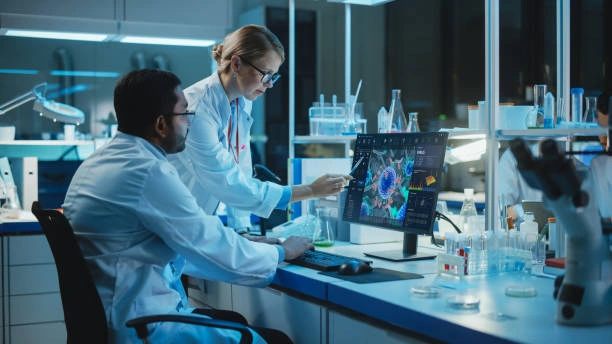Biotechnology is moving at lightning speed, advancing fields like medicine, agriculture, and environmental science. For biotech enthusiasts, staying informed about the latest developments is both exciting and essential. This blog post dives into the world of biotechnology, highlighting its significance, recent advancements, and how it’s poised to shape our future.
What is Biotechnology?
Biotechnology is the use of living organisms and biological systems to develop products and technologies that solve problems and improve human life. It spans various fields, including medicine, agriculture, and environmental science. By harnessing the power of biology, scientists can create innovative solutions that address pressing global challenges.
In medicine, biotechnology has led to remarkable advancements, such as gene therapy, personalized medicine, and regenerative medicine. These innovations offer new treatment options and improve patient outcomes. In agriculture, biotechnology has given rise to genetically modified crops that are more resistant to pests and diseases, as well as techniques for improving crop yields and sustainability. Environmental biotechnology focuses on developing methods to clean up pollution, manage waste, and conserve natural resources.
The Role of Biotechnology in Medicine
Gene Therapy Revolution
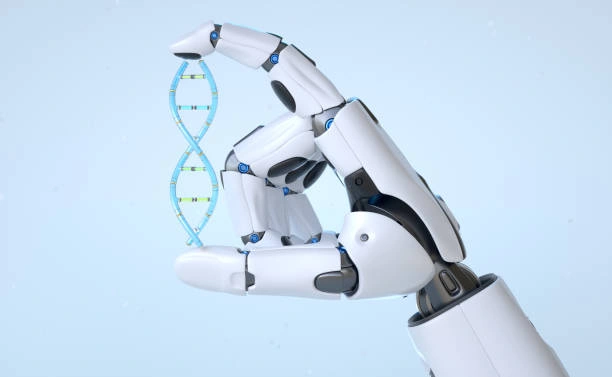
Gene therapy has transformed the treatment landscape for genetic disorders. By inserting, deleting, or altering genes within an individual’s cells, scientists can treat diseases at their root cause. This approach has shown promise in curing conditions like cystic fibrosis and certain types of cancer.
Personalized Medicine
Personalized medicine tailors medical treatment to the individual characteristics of each patient. By considering genetic, environmental, and lifestyle factors, healthcare providers can create customized plans that improve patient outcomes. This approach not only enhances the effectiveness of treatments but also reduces the risk of adverse reactions.
Regenerative Medicine
Regenerative medicine uses cells, tissues, and organs to repair or replace damaged body parts. Stem cell therapy and tissue engineering are at the forefront of this field, offering hope for conditions previously deemed incurable. These advancements could eventually lead to the regeneration of entire organs, revolutionizing transplant medicine.
Agricultural Biotechnology
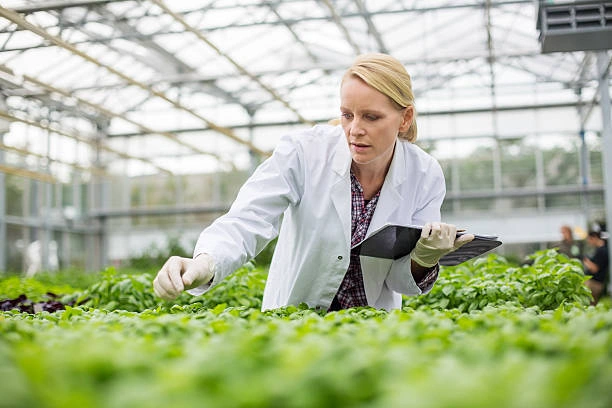
Genetically Modified Crops
Genetically modified (GM) crops have been engineered to resist pests, diseases, and environmental conditions. These innovations reduce the need for chemical pesticides and increase crop yields, contributing to global food security. GM crops also offer nutritional enhancements, such as rice enriched with vitamin A.
Improving Crop Yields
Biotechnology has introduced techniques like marker-assisted breeding, which speeds up the development of high-yield crop varieties. Additionally, researchers are exploring the use of CRISPR technology to edit plant genes, improving traits like drought tolerance and nutrient absorption.
Sustainable Farming
Biotechnology supports sustainable farming practices by developing crops that require fewer resources. For example, nitrogen-fixing crops reduce the need for synthetic fertilizers, minimizing environmental impact. Innovations in biopesticides and biofertilizers also promote healthier ecosystems and more sustainable agriculture.
Environmental Biotechnology
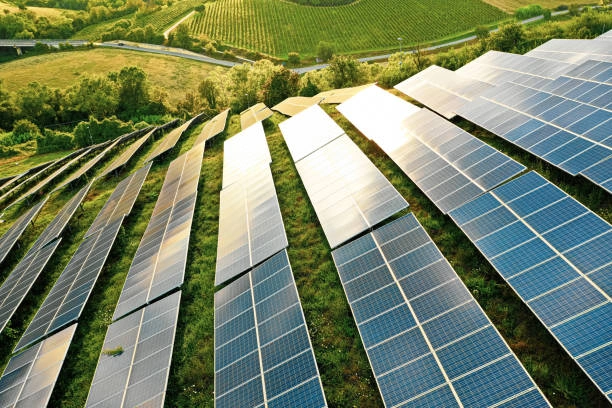
Bioremediation
Bioremediation uses microorganisms to clean up contaminated environments. This technique is effective in treating oil spills, heavy metal pollution, and other hazardous waste. By harnessing nature’s ability to detoxify pollutants, bioremediation offers a sustainable solution to environmental challenges.
Waste Treatment
Biotechnology is revolutionizing waste treatment processes. Advanced microbial treatments break down organic waste more efficiently, reducing the volume of waste sent to landfills. Additionally, biogas production from waste materials provides a renewable energy source, contributing to a circular economy.
Conservation Efforts
Biotechnology aids in conservation efforts by supporting the protection of endangered species and habitats. Genetic analysis helps track biodiversity, while cloning technologies can preserve genetic material from threatened species. These tools are crucial for maintaining ecological balance in the face of climate change.
The Future of Biotechnology
Emerging Technologies
Emerging technologies like synthetic biology and nanobiotechnology are pushing the boundaries of what’s possible. Synthetic biology allows for the design of new biological parts and systems, while nanobiotechnology integrates nanotechnology with biology for applications in drug delivery and diagnostics.
Ethical Considerations
With rapid advancements come ethical considerations. Issues like genetic privacy, biohacking, and the potential for bioterrorism require careful regulation and oversight. Engaging in public discourse and developing clear ethical guidelines will be essential for responsible biotech innovation.
Global Impact
Biotechnology holds the potential to address global challenges such as food security, disease prevention, and environmental sustainability. International collaborations and equitable access to biotechnological advancements will be key to maximizing its benefits for all.
The History of Biotechnology
Biotechnology has a long and storied history, dating back thousands of years. Early examples include the domestication of plants and animals, as well as the use of fermentation to produce bread, beer, and wine. These ancient practices laid the foundation for modern biotechnology, which began to take shape in the 20th century.
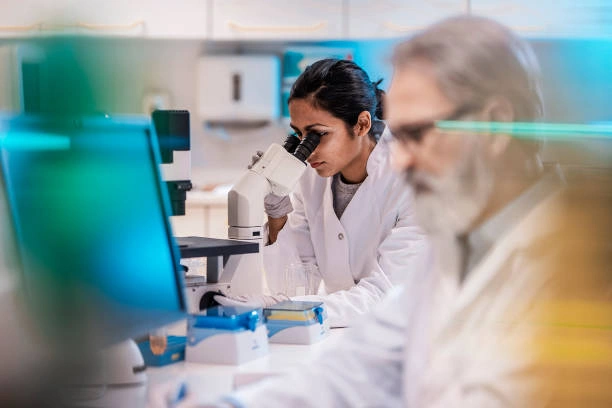
The discovery of DNA’s structure in 1953 marked a turning point in biotechnology. This breakthrough allowed scientists to understand the genetic code and paved the way for genetic engineering. In the 1970s, researchers developed techniques for manipulating DNA, leading to the creation of the first genetically modified organisms (GMOs).
Since then, biotechnology has continued to evolve rapidly, driven by advances in molecular biology, genetics, and computer science. Today, biotechnology is at the forefront of scientific innovation, offering solutions to some of the world’s most pressing problems.
Gene Therapy Revolutionizing Medicine
Gene therapy is one of the most promising advancements in biotechnology. This cutting-edge technique involves altering a patient’s genetic material to treat or prevent disease. By correcting faulty genes or introducing new ones, gene therapy can address the root cause of various genetic disorders.
Several gene therapies have already been approved for clinical use, offering hope to patients with previously untreatable conditions. For example, Luxturna is a gene therapy that treats a rare form of inherited blindness, while Zolgensma targets spinal muscular atrophy, a severe neurodegenerative disease. These groundbreaking treatments demonstrate the potential of gene therapy to transform medicine and improve patients’ lives.
Personalized Medicine Tailoring Treatments to Individuals
Personalized medicine is another exciting development in biotechnology. This approach involves using genetic information to tailor medical treatments to individual patients. By understanding a person’s unique genetic makeup, doctors can prescribe more effective therapies with fewer side effects.
One example of personalized medicine is pharmacogenomics, which studies how genes affect a person’s response to drugs. This information can help doctors choose the right medication and dosage for each patient, reducing the risk of adverse reactions and improving treatment outcomes.
Another area of personalized medicine is cancer treatment. By analyzing the genetic mutations driving a patient’s cancer, doctors can select targeted therapies that specifically attack those mutations. This precision approach increases the likelihood of successful treatment and minimizes damage to healthy cells.
Regenerative Medicine Healing Through Biotechnology
Regenerative medicine is a rapidly growing field that aims to repair or replace damaged tissues and organs using biotechnology. This innovative approach has the potential to revolutionize healthcare by offering new treatment options for various conditions, including heart disease, diabetes, and spinal cord injuries.
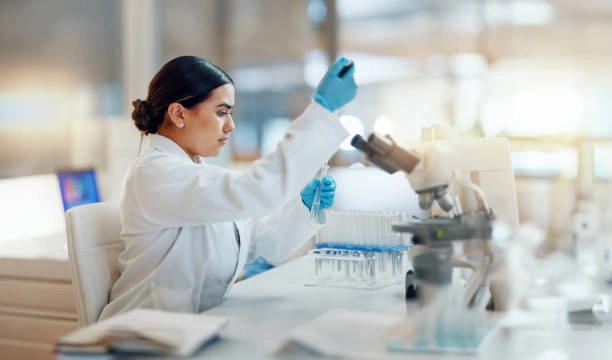
One promising area of regenerative medicine is stem cell therapy. Stem cells are unique because they can develop into different types of cells, making them ideal for repairing damaged tissues. Researchers are exploring ways to use stem cells to treat various diseases, from Parkinson’s disease to heart failure.
Another exciting development in regenerative medicine is tissue engineering. By combining cells, biomaterials, and growth factors, scientists can create functional tissues and organs in the lab. These engineered tissues can be used for transplantation, reducing the need for donor organs and improving patient outcomes.
Agricultural Biotechnology Enhancing Food Production
Agricultural biotechnology has the potential to transform food production by developing crops that are more resistant to pests, diseases, and environmental stresses. This can help ensure food security, reduce the need for harmful pesticides, and promote sustainable farming practices.
One of the most well-known applications of agricultural biotechnology is the development of genetically modified organisms (GMOs). These crops have been engineered to possess desirable traits, such as resistance to pests, herbicides, and environmental conditions. For example, Bt corn produces a protein that is toxic to specific insect pests, reducing the need for chemical pesticides.
In addition to GMOs, agricultural biotechnology also includes techniques for improving crop yields and sustainability. For example, researchers are developing methods to enhance the efficiency of photosynthesis, the process by which plants convert sunlight into energy. By boosting photosynthesis, scientists aim to increase crop yields and reduce the environmental impact of agriculture.
Environmental Biotechnology Protecting Our Planet
Environmental biotechnology focuses on using biological processes to address environmental challenges, such as pollution, waste management, and resource conservation. This field offers innovative solutions for creating a more sustainable and environmentally friendly future.
One application of environmental biotechnology is bioremediation, a process that uses microorganisms to break down pollutants and clean up contaminated sites. For example, certain bacteria can degrade oil spills, while others can remove heavy metals from soil and water. Bioremediation offers a cost-effective and eco-friendly alternative to traditional cleanup methods.
Another area of environmental biotechnology is waste management. By using biological processes to treat and recycle waste, we can reduce the environmental impact of our waste production. For example, anaerobic digestion is a process that uses microorganisms to convert organic waste into biogas, a renewable energy source. This not only reduces waste but also generates clean energy.
The Future of Biotechnology
The future of biotechnology is incredibly bright, with new advancements and applications emerging at a rapid pace. From gene editing to synthetic biology, the potential for biotechnology to improve our lives and address global challenges is immense.
One exciting area of research is CRISPR-Cas9, a revolutionary gene-editing technology that allows scientists to make precise changes to an organism’s DNA. This powerful tool has the potential to treat genetic disorders, improve crop yields, and even combat climate change.
Another promising field is synthetic biology, which involves designing and constructing new biological parts, devices, and systems. This interdisciplinary approach has the potential to create new materials, biofuels, and medicines, revolutionizing industries and improving our quality of life.
Biotechnology and Ethics
While biotechnology offers incredible potential, it also raises important ethical considerations. Questions about the safety, accessibility, and long-term impacts of biotechnological advancements must be carefully considered to ensure responsible development and use.
One ethical concern is the potential for unintended consequences. For example, the release of genetically modified organisms into the environment could have unforeseen effects on ecosystems and biodiversity. It is essential to conduct thorough risk assessments and implement appropriate safeguards to minimize these risks.
Another issue is the accessibility of biotechnological advancements. Ensuring that these innovations are available to all, regardless of socioeconomic status, is crucial for promoting global health equity. Policymakers, researchers, and industry leaders must work together to develop strategies that make biotechnology accessible and affordable for everyone.
Real-World Applications of Biotechnology
Biotechnology is already making a significant impact across various fields, with numerous real-world applications demonstrating its potential. From healthcare to agriculture, biotechnology is transforming industries and improving lives.
In healthcare, biotechnology has led to the development of life-saving treatments, such as insulin for diabetes, monoclonal antibodies for cancer, and vaccines for infectious diseases. These advancements have significantly improved patient outcomes and extended life expectancy.
In agriculture, biotechnology has increased crop yields, reduced the need for chemical pesticides, and improved the nutritional content of food. For example, Golden Rice is a genetically modified rice variety that contains higher levels of vitamin A, addressing malnutrition in developing countries.
In environmental science, biotechnology is helping to clean up pollution, manage waste, and conserve natural resources. For instance, researchers are developing bio-based plastics that are biodegradable and reduce our reliance on fossil fuels.
The Role of Biotechnology in Pandemic Response
The COVID-19 pandemic has highlighted the critical role of biotechnology in responding to global health crises. Biotechnology has been instrumental in developing diagnostic tests, treatments, and vaccines at unprecedented speeds, saving countless lives and mitigating the pandemic’s impact.
One of the most notable achievements is the development of mRNA vaccines, such as those produced by Pfizer-BioNTech and Moderna. These vaccines use messenger RNA to instruct cells to produce a protein that triggers an immune response, providing protection against the virus. The rapid development and deployment of these vaccines have been a testament to the power of biotechnology.
In addition to vaccines, biotechnology has played a vital role in developing diagnostic tests and treatments for COVID-19. For example, polymerase chain reaction (PCR) tests, which detect viral genetic material, have been essential for identifying and controlling outbreaks. Monoclonal antibodies and antiviral drugs have also provided effective treatment options for patients with COVID-19.
How to Get Involved in Biotechnology
If you’re passionate about biotechnology and want to get involved, there are many ways to do so. Whether you’re a student, researcher, entrepreneur, or enthusiast, there are opportunities to contribute to this exciting field and make a difference.
One way to get started is by pursuing a degree in biotechnology or a related field, such as molecular biology, genetics, or bioinformatics. Many universities offer undergraduate and graduate programs that provide the knowledge and skills needed to excel in biotechnology.
Another option is to join a professional organization or community group focused on biotechnology. These groups often offer networking opportunities, events, and resources to help you stay informed and connected with industry professionals.
Finally, consider participating in research projects, internships, or volunteer opportunities that allow you to gain hands-on experience and contribute to biotechnological advancements. Many organizations and institutions offer programs that enable individuals to work on cutting-edge research and development projects.
Conclusion
Biotechnology is a dynamic and rapidly evolving field with profound implications for our future. From medical breakthroughs to sustainable agriculture and environmental conservation, biotech innovations are transforming our world. For biotech enthusiasts, staying informed and engaged with these advancements is crucial. Whether you’re a researcher, a student, or simply curious about the future, biotechnology offers endless possibilities for making a positive impact.
By understanding and supporting the developments in biotechnology, we can contribute to a healthier, more sustainable world. Stay tuned to our blog for more insights and updates on the exciting world of biotechnology. If you’re looking to deepen your knowledge or need expert advice, don’t hesitate to reach out and join our community of biotech enthusiasts. Together, we can drive the future of innovation and discovery.
Taking Action
Explore more about how biotechnology can improve your life and business. Sign up for our newsletter, join our forums, and stay connected with the latest trends and discoveries in the biotech field. Let’s shape the future together, one innovation at a time.

